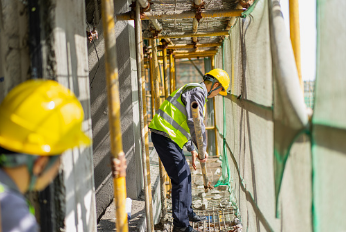A licensed builder can oversee all aspects of construction. Additionally, licensed builders are qualified to obtain and sign building permits as needed for projects such as new home builds or envelope renovation projects requiring home warranty insurance policies.
 This hybrid class provides experienced residential tradespeople with all the training necessary to pass the SC Residential Builder exam, making this course suitable for construction managers and home inspectors.
This hybrid class provides experienced residential tradespeople with all the training necessary to pass the SC Residential Builder exam, making this course suitable for construction managers and home inspectors.
Qualifications
An applicant for licensure as a licensed builder Adelaide must fulfil certain qualifications, which include having completed either a trade qualification or apprenticeship and post-trade building experience. Furthermore, you must have at least 24 months of management or supervisory experience on residential construction projects, not necessarily consecutive but covering each of the seven competencies that make up your license requirements (for more details, see Experience Requirement for New Residential Builders Regulatory Bulletin).
Licenced builders also access numerous professional support services unavailable to unlicensed builders. Organisations like Housing Industry Australia and Master Builders require you to have a license before joining. As members, you can list your business in their databases and access funding options for hiring apprentices – among many other benefits.
Many municipalities also impose license requirements on contractors or construction tradespeople operating within their boundaries, so you should check with them beforehand to ascertain what these are.
Experience
Licensed builders’ scope of work depends on their license types, such as Builder-Medium Rise or Demolisher. Licensees should only take on projects within their area of competence – for instance, demolition work on commercial buildings over five storeys should only be undertaken with permission. HIA provides nationally recognised training (NRT), which can assist licensed builders Adelaide and registered builders in achieving licensure or registration, staying abreast of industry changes, completing their license or registration, and staying informed with changes such as Cert IV in Construction qualifications.
Property owners should always conduct due diligence when hiring professionals, including checking their disciplinary and voluntary surrender records before engaging them. Use the Know Your Construction Professional Directory as a source to do this.
Insurance
A licensed builder must carry multiple insurance policies to protect their construction projects and clients, such as the builder’s risk and general liability coverage. Builder’s risk policies protect projects against fire, wind damage and theft of materials during transit and off-site locations – usually costing between 1%-5% of total construction budget costs.
Contractors and developers may need general liability insurance as part of their risk mitigation strategies. Such policies cover costs associated with defending against lawsuits filed against employees or clients for property damage or injuries they claim occurred during business operations; they can also cover legal fees associated with settling a claim; some companies even require this form of cover before contracting with contractors and developers.
License requirements
All states have specific requirements for individuals and businesses who seek to become licensed builders, though these can differ by county or city. It is best to contact the licensing authority in their area for more specifics, but in general, they will likely have to pass an exam covering trade, business and law in addition to providing proof of work experience and carrying General Liability and Workers’ Compensation policies.
To become licensed as a residential builder or maintenance and alteration contractor in New York, an applicant will have to pass general construction and home improvement exams and provide at least four years of relevant experience. They may also need to attend a 16-hour cold climate course and pass commercial plumbing, HVAC and electrical exams.
California law mandates that any individual or business engaging in building, altering, constructing, or altering any structure – be it residential, commercial, or public works projects of over $10,000 value — requires a state license Contractors that perform work under public projects valuing over $10K also need an electrical, plumbing and HVAC license as an added measure.
Contractors licensed to handle and remove asbestos must pass the Asbestos Open Book Examination as part of their licensing requirements. Because this can be challenging for individuals to fulfil, it’s wise to familiarise oneself with state and local laws before beginning work on this project.
